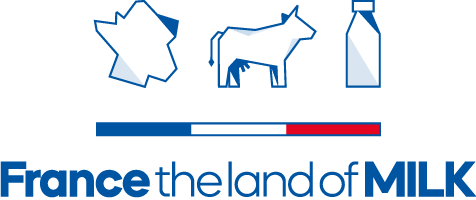The milk quality chain
Health and safety control in the dairy sector strats at the farm and continues at factories during storage and until the product reaches the end customer. It is governed by strict regulations and extended by many voluntary approaches adopted by breeders and industry players.
Food safety begins at the farm
Dairy farmers are the first guarantors of milk quality. They look after the health and food of their livestock and ensure good hygiene. The premises and equipment are disinfected after every milking. The milk is stored in a tank at 4°C.
Compliance with European standards in terms of cow health and the health status of farms is checked regularly by the State veterinary services.
Beyond regulations, breeders have committed to the charter of good practices for livestock farmers, which certifies their ability to control their livestock, the health of the farme and the superior quality of their milk.

Strict hygiene criteria for collected milk
As early as 1969, France became the first country to adopt a law governing the payment of milk according to its composition and health quality. Samples are taken during every collection on every farm.
Germs and somatic cell count must not exceed the thresholds laid down in regulations. These are indicators of the cleanliness of the farms and the cows’ health. Milk is also subject to strict testing for antibiotic residue. If it tests positive, the milk is purely and simply destroyed.
Once it arrives at the dairy, the milk is tested again. No dairy products leave the dairy until the quality of the milk has been guaranteed.

Au-delà des prélèvements pour le paiement du lait, des contrôles sont menés de façon inopinée au moins trois fois par mois par des agents agréés par l’État pour suivre la santé de chaque vache et la qualité de son lait.
Milk is analysed in the same way everywhere in France
Whatever the production site, the same principles for milk sampling and testing apply. Special criteria may be required to meet certain specifications such as raw milk cheeses.
15 laboratories approved by the Ministry for Agriculture carry out milk testing for payment in the same way throughout France. They are certified by an official body which attests to the impartiality of the results and reliability of the analyses.
All factories have been issued a health and safety certificate by the State
All dairy factories in France and storage centers have a mandatory health control plan.
It describes the measures taken to ensure the hygiene and safety of products in terms of biological, physical and chemical dangers and traceability procedures.
The control plan must be checked and approved by the State. The factory then receives an official health and safety certificate which is essential in order to be able to sell the products manufactured.
In addition, companies use different voluntary approaches to quality assurance certifications.
Une traçabilité à toute épreuve
La traçabilité est assurée entre les élevages et la citerne de collecte, puis tout au long de la fabrication en usine et jusqu’au client final.
Une traçabilité amont permet d’identifier l’origine de tout ce qui entre dans l’usine : la provenance du lait matière première, chacun des ingrédients utilisés, les emballages...
Une traçabilité interne aux usines permet d’enregistrer les lots et les pratiques de fabrication afin de pouvoir reconstituer le cheminement du produit aux différentes étapes des procédés. Une traçabilité aval identifie les produits en liaison avec les clients.
Do you know about the health certificate?
Products for export are accompanied by a health certificate which recognises compliance with the standards set by the importing country. It is signed by official control departments.
 繁體中文
繁體中文  简体中文
简体中文  한국어
한국어  Français
Français 
